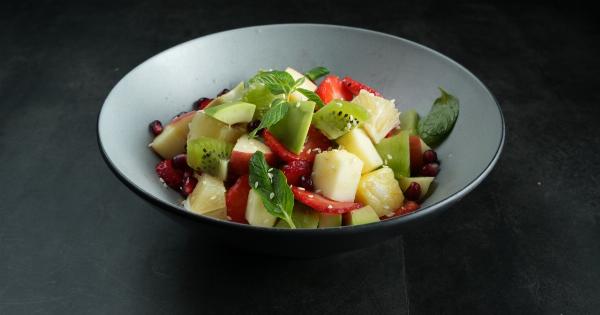Kiwi is a nutritious fruit that is popularly known for its high vitamin C content and distinct taste. It is also packed with nutrients like vitamin K, vitamin E, potassium, fiber, and antioxidants.
Kiwis are an excellent fruit to offer to babies once you start introducing solid food into their diet. But, before feeding your little one kiwi, there are some things you should consider.
When can babies start eating kiwi?
The American Academy of Pediatrics recommends that babies start eating solid foods between 4 and 6 months of age. However, before introducing kiwi or any other food, you should consult with your pediatrician to ensure that your baby is ready for solids.
Your pediatrician may suggest that you start with a different fruit or vegetable before introducing kiwi.
Health benefits of kiwi for babies
Kiwi is a nutrient-dense fruit that provides many health benefits for babies and adults alike. Here are a few perks of adding kiwi to your baby’s diet:.
1. Boosts Immunity
Kiwi is rich in vitamin C, which helps build a child’s immunity against diseases and infections.
A single kiwi contains more than the recommended daily intake of vitamin C for babies, making it a perfect choice to help strengthen their immune system.
2. Aids digestion
Kiwi is an excellent source of fiber, which helps promote digestion in babies. Fiber helps keep bowel movements regular and prevent constipation in babies.
3. Helps in brain development
Kiwi contains essential fatty acids that are necessary for a baby’s brain development. It also contains vitamin E, which is a potent antioxidant and helps protect brain cells from damage.
4. Promotes bone health
Kiwi is an excellent source of calcium, which is essential for the formation and strengthening of bones in babies. It also contains vitamin K, which promotes bone health by aiding in the absorption of calcium in the body.
How to prepare kiwi for babies
Kiwi can be introduced into a baby’s diet in various ways, depending on their age and dietary restrictions. Here are some ways you can prepare kiwi for your little one:.
1. Puree
This is an excellent way to introduce kiwi to your baby, especially if they are under six months. Puree the kiwi in a food processor until smooth, and then feed it to your baby.
Make sure the kiwi is thoroughly peeled and seeded before blending it to prevent choking hazards.
2. Finger food
Once your baby is around six months old and is comfortable eating chunkier foods, you can cut the kiwi into small pieces and let them feed themselves. Make sure the pieces are small and soft enough to prevent choking hazards.
3. Yogurt and kiwi puree
A mixture of kiwi and yogurt can be a great snack or meal for your baby. Mix plain yogurt and kiwi puree until it’s the desired consistency and then feed it to the baby.
This is a good way to introduce plain yogurt into your baby’s diet and get them used to the tangy taste.
Things to keep in mind while feeding your baby kiwi
Now that you know the benefits of kiwi and how to prepare it for your baby let’s look at some factors you should keep in mind when feeding your little one kiwi.
1. Allergies
Kiwi is known to cause allergies in some people, including babies. Symptoms of kiwi allergies include rashes, hives, difficulty in breathing, diarrhea, vomiting, and more.
Therefore, watch your baby carefully for signs of allergies after introducing kiwi for the first time. If they show any symptoms of an allergic reaction, stop feeding them kiwi immediately and seek medical attention.
2. Avoid feeding kiwi seeds
Kiwi seeds are small and hard and can cause choking hazards in babies. Always remove the seeds before feeding kiwi to your little one.
3. Check for ripeness
Make sure the kiwi is ripe before feeding it to your baby as unripened kiwi can be firm and difficult to swallow. A ripe kiwi is springy to the touch and should give slightly when pressed. The flesh should also be a bright green color.
The verdict
Kiwi is a healthy and nutritious fruit that is excellent for babies. It’s a great source of vitamins, minerals, and antioxidants that are perfect for your baby’s overall development.
However, it’s essential to be cautious when introducing new foods to your baby and always consult with your pediatrician. Remember to watch for allergies, remove seeds, and check for ripeness to ensure that your baby enjoys the benefits of kiwi while staying safe.































